By Kelly Kanayama
Do you like deceptively simple indie comics about alienated teen romance with a twist, where the twist is murder? I suggest checking out Charles Forsman and his comic The End of the Fucking World, which — bonus — has been adapted into a TV drama on Netflix.
Do you like pulpy, ’80s movie action about an intriguing loner on a mission with nothing to lose except a whole lot of weapons? Forsman has got you with Revenger, where one woman fights her way through criminals, corporate fat cats, vampires, and more, leaving extremely cool bloodbaths in her wake.
How about adolescent mental health and identity crises filtered through a relatable yet superheroic lens, with a sprinkling of art that contemplatively evokes vintage comic strips of yesteryear? Once again, I can recommend Charles Forsman, or more specifically his graphic novel I Am Not Okay With This, which is also being adapted for Netflix.
I sat down with one of the most eclectic creators in independent comics to talk about violence, seeing one’s indie work on the prestige small screen, and why people see themselves in murderous teens on TV.
Kelly Kanayama: How’s your NYCC going so far?
Charles Forsman: It’s great. It’s my first time doing this show — I table usually with Michel Fiffe at these things; I avoided it for years because, you know, the craziness, and I thought they wouldn’t be into my stuff anyway. But Fiffe’s new Image #1 for Copra is coming out this month, and it made me want to go back to Revenger and do a one-shot, so I did a Halloween special and decided to get a table. And it worked out well. It’s going good.
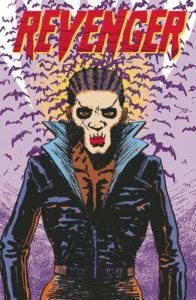
Kanayama: What happens in the Revenger one-shot?
Forsman: It takes place in Mexico City, and it’s at the end of a job that Revenger is just doing for money — killing capitalists for the Soviets. And she finds this little girl in a closet who’s obviously been turned into a vampire.
Kanayama: Obviously.
Forsman: She takes her on as a charity case. [Revenger] is a tough lady, but she saw this little girl and thought maybe she could save her. So the girl leads her back to her dad and their vampire nest in this four-story building filled with vampires, and the rest is Revenger fighting her way through the story.
Kanayama: Why did you decide to go back to Revenger specifically, rather than one of your other comics?
Forsman: It’s a good break. You know, I really like Revenger, but for me it’s like candy; it’s a lot of fun. It’s getting me back to the comics I read as a kid. I love action movies — and it’s an opportunity to exercise that stuff. And some people like it, so I keep going back to it.
Kanayama: Could you talk about that more generally? Between Revenger and Slasher and similar comics you’ve done, there’s a pulp violence sensibility that spans a lot of your work. What is it about violence that engages you?
Forsman: I’m not sure. I think it’s because it’s a scary thing that happens in the world. And I know that ever since I was a little kid, writing stories in fourth grade, there was always someone getting killed or something. It’s just always been present in my work, and I don’t know if I’m qualified to say why I’m fascinated by it — but I mean, the whole world’s fascinated by it.
Kanayama: The Netflix adaptation of your comic The End of the F***ing World is coming back soon for Season 2. How involved have you been as it moves into its next season?
Forsman: On paper I’m not very involved at all. During the lead-up to the first season getting made — it took us around six years to get it made ‚ I became very close with Jonathan Entwistle, who’s the director and creator of the show. He really understood the material, and we talked a lot, so it felt like through him — you know, the thing I learned about getting stuff adapted is that if you have a work getting adapted, it’s hard to cross that line. And truthfully, I wasn’t ready for that. I was happy with my book, and I don’t make movies or TV shows; I was happy just to do something cool. I thought it was really awesome, and the show was great.
I’m of the mind that I don’t want them to feel beholden to follow my book to a tee. I want them to make the best thing possible, and that doesn’t always mean following whatever the source material is. But yeah, they’re making another season, and I have no book left, so they have to make it up.
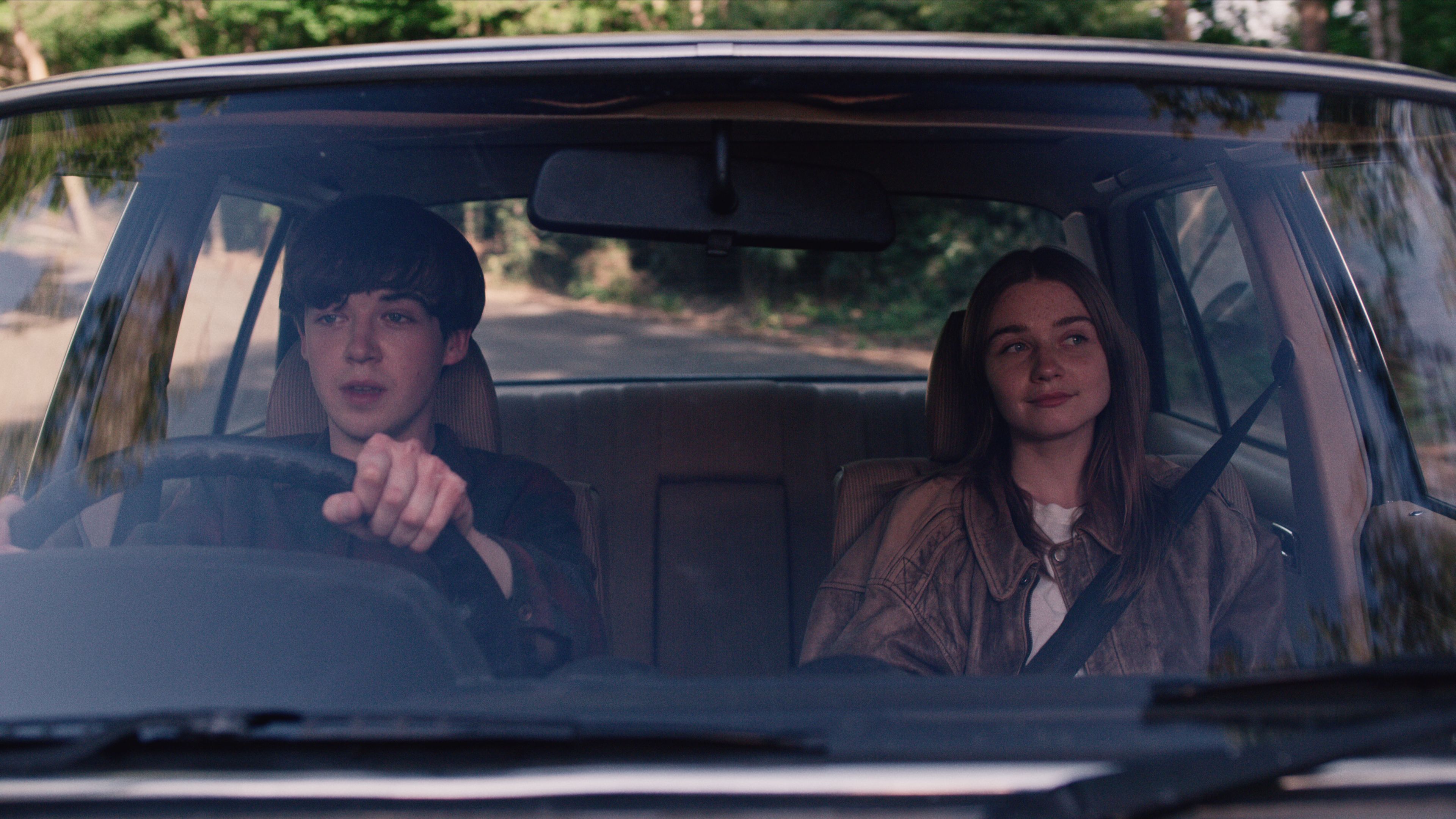
Kanayama: I was wondering about that, since TEOTFW is a one-book comic. Are they taking anything from your comic that didn’t make it into Season 1 and putting it in Season 2, or is it all just new material at this point?
Forsman: There’s a few very tiny details that they didn’t use in the first season that I think they’re going to use in the second one, but from what I know, overall it’s going to be an original sort of continuation by the original writer of the first season, Charlie Covell. And I loved everything she did in the first season, so I’m just as excited as everyone else to see what she does.
Kanayama: Pretty much every comics creator whose work is adapted for the screen probably gets asked about the difference between what’s on the page and what they see in the adaptation. But I feel like the difference stands out more for a creator like yourself, where you have a very distinctive style and sensibility that maybe doesn’t obviously translate to the screen.
Forsman: It looks like old Peanuts strips.
Kanayama: So what is it like to see that succeed in live-action?
Forsman: Well, two things about it. I think the simplicity of the way I drew it was what drew Jonathan to the book. He said he could imagine putting the characters in his world. And the experience of being on set and hearing the actors say lines that I’d written was really crazy the first time. I was with my girlfriend on the set, and we were listening to the audio through headphones, and one character said something, and I laughed and said, “That’s a good line.” She [my girlfriend] was like, “You know you wrote that, right? In the book!” It didn’t even occur to me that some of the dialogue would make it in. But it’s very strange; I’m slowly getting used to it.
Kanayama: Has that affected how you approach your work now?
Forsman: I try very hard to not let it affect me at all. I mean, obviously there’s new opportunities in my life as far as getting stuff adapted, but the lesson I learned with TEOTFW when I did the comic originally was that when I started, it was an experiment to throw out all the expectations I was putting on myself as far as getting it published, or if an editor’s going to like it or if the readers are going to like it. I drew it simply and sold it for a dollar, because I wanted to do it fast and simple, just to get something out there. And it was the work that people responded to the best. So I try and keep doing that.
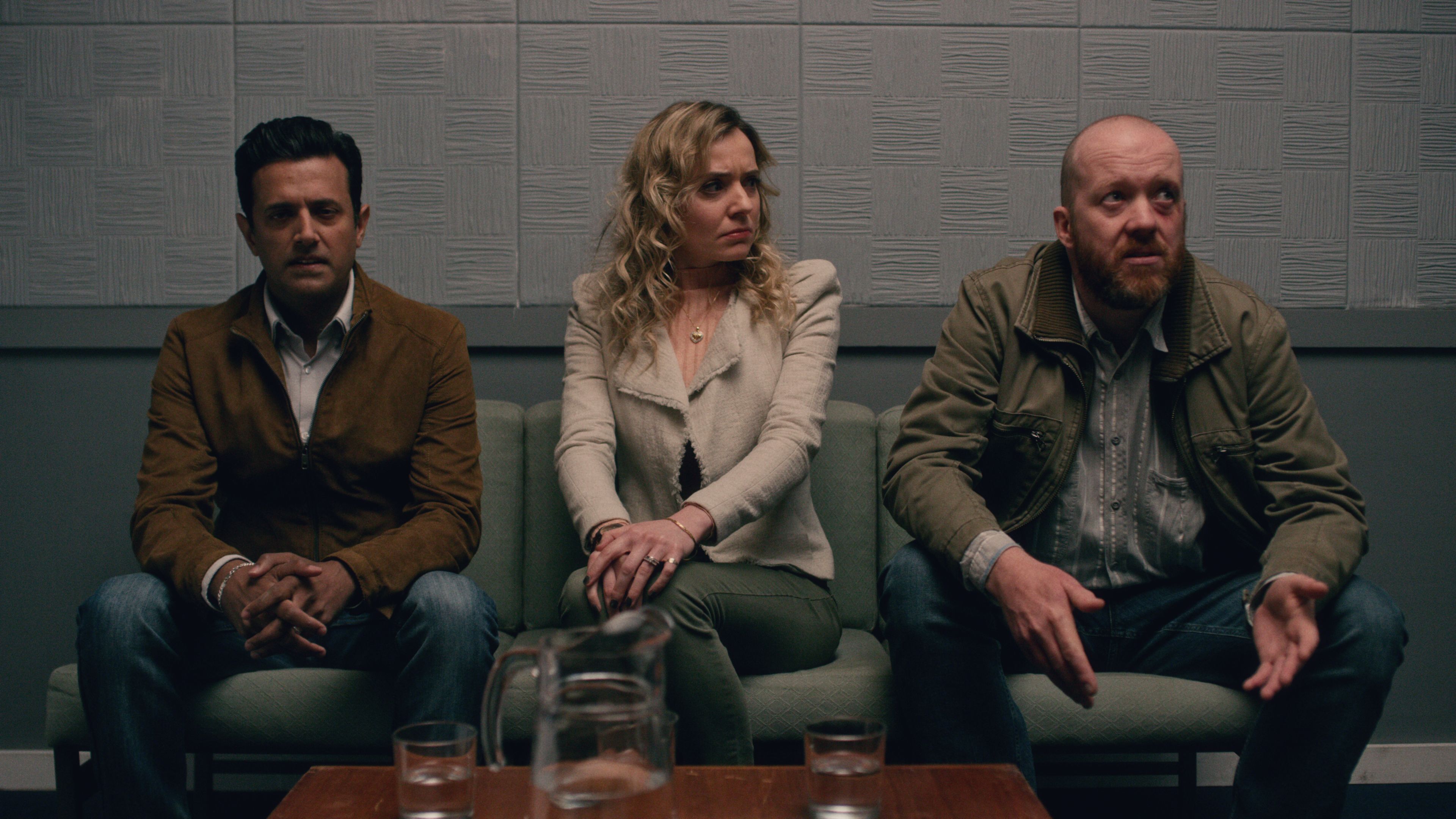
Kanayama: It’s interesting that TEOTFW was the first of your comics to be picked up for adaptation, since some of your other work, like Revenger and Slasher, seems like it would translate more obviously to mass appeal.
Forsman: I’m not sure why. You’d probably have to talk to Jonathan; I’m sure he’d have some great line about that. I think he just saw some human characters and a viewpoint — I mean, it’s about a kid who’s a sociopath and murders people, but he’s also trying to be in love with a girl. And the book is inspired by Badlands, the Terence Malick movie with Martin Sheen and Sissy Spacek from the 1970s. [That’s] about a couple who’s on a murderous rampage through the Midwest, and it’s partly inspired by a true-life story. So there’s bits of inspiration from other work that I like. But I don’t know. It’s hard for me to step outside and look at it.
…I know a lot of people relate to James and Alyssa [the main characters from TEOTFW], even though they’re kind of extreme characters. I think a lot of people felt alienated, especially as teenagers; everyone feels like an alien when they’re a teenager, and it’s not a big leap to sympathize with them.
Kanayama: With the show being on Netflix and heading into its second season, do you still feel like a cult comics person? How much did you feel like that before?
Forsman: I don’t know. I always saw myself as being in the alternative comics world, especially with my early work; my dream was to be published by Fantagraphics, and that happened, but I never felt completely part of that club. I think there’s something with my generation where, with books like Revenger, I sort of embraced the comics I read as a kid — whereas there was a time where I wouldn’t speak of that stuff because I thought it was horrible and I was ashamed.
Kanayama: Which comics?
Forsman: Oh, my brother gave me his Jim Lee X-Men collection. And he started buying Image, so I started buying that, and I went on from there. But now I’ve completely turned around, and I look at that stuff and I see the passion that went into it. That’s sort of what Revenger represents. So I think I try and straddle those two worlds like, I think, a lot of people of my generation, like Ben Marra or Michel Fiffe. It used to be an “us vs. them” mentality, between mainstream and alternative, but I like everything. So many different kinds of comics.
Kanayama: Is there anything else coming up for you in the future that you would like to mention?
Forsman: TEOTFW Season 2 comes out in November, and Jonathan Entwistle has shot I Am Not Okay With This for Netflix, which will be out next year. That’s being produced by 21 Labs, which is the company that does Stranger Things. I got to go on set for that, and I’m really excited about it. And I’m working on a book called Automa, which is a science fiction book partly inspired by manga and Terminator 2. I’m serializing that right now through my Patreon — $3 and I’ll send you a copy. So hopefully we’ll get that wrapped up next year and we’ll get a collection out. And there are a few other things I probably shouldn’t talk about yet, but there’s plenty in the works.
The Revenger Halloween special is on shelves now. To keep up with Charles Forsman on social media, follow him on Twitter.


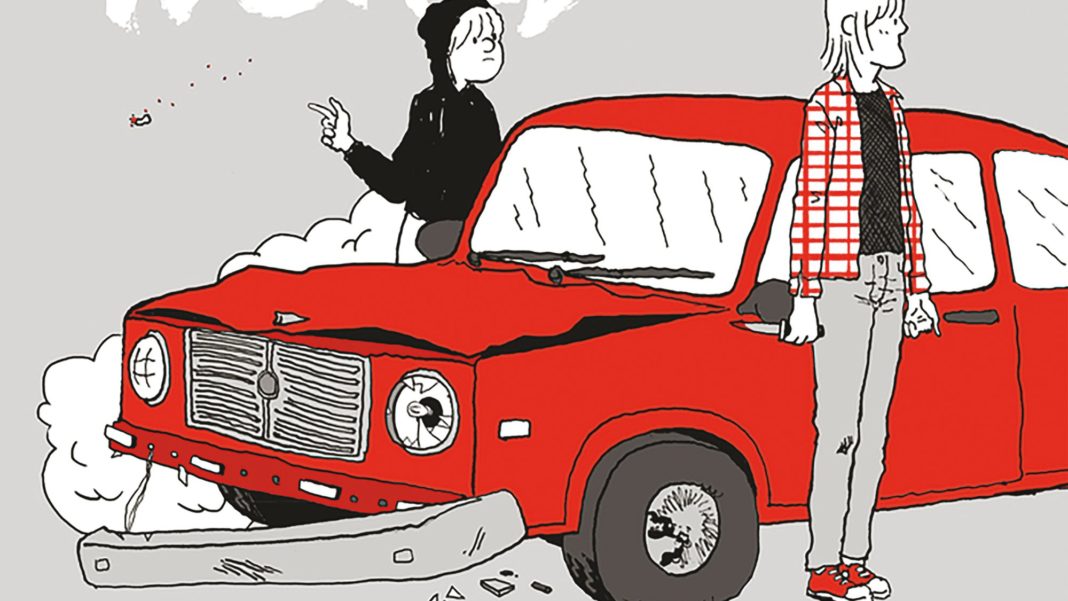
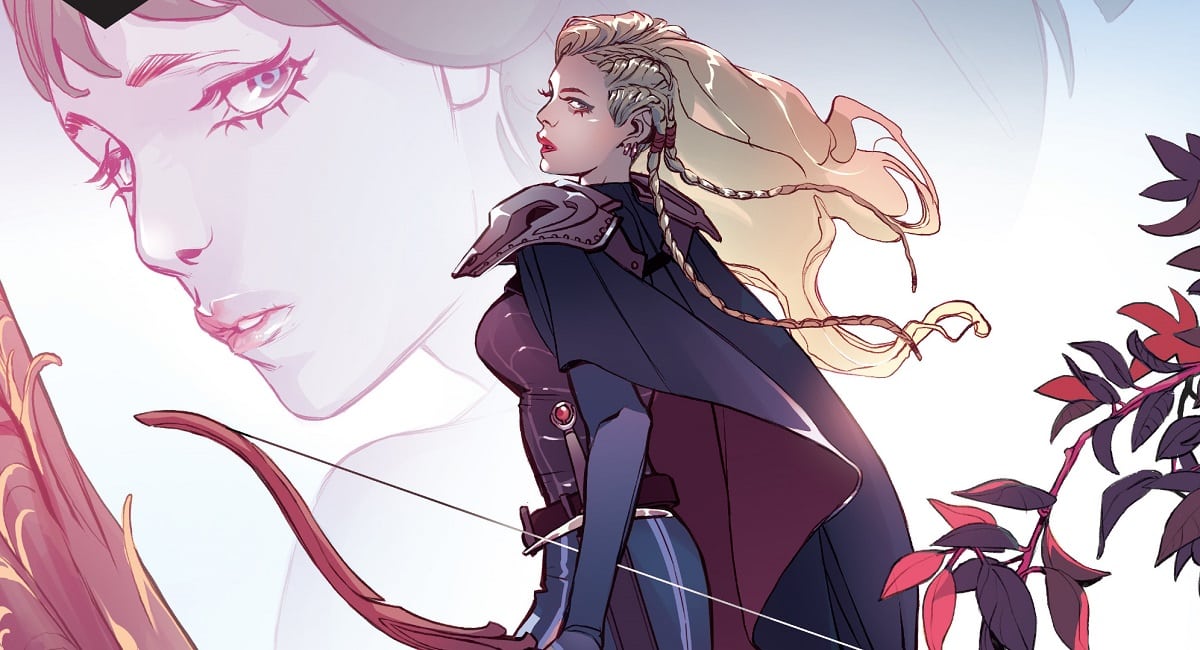
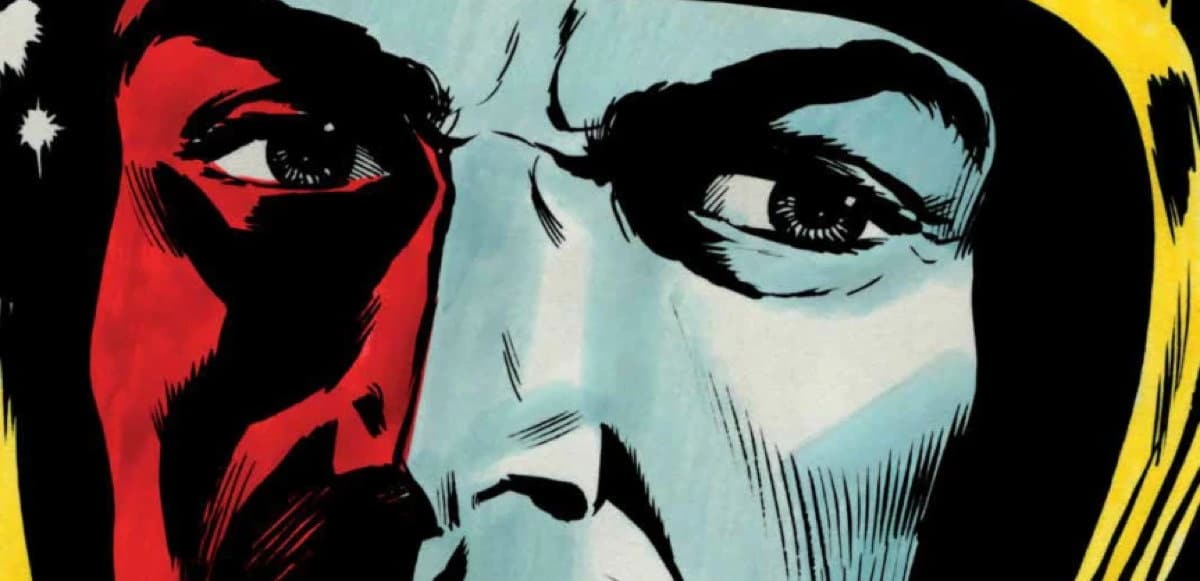
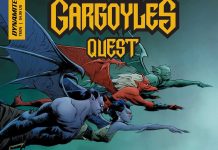


Comments are closed.